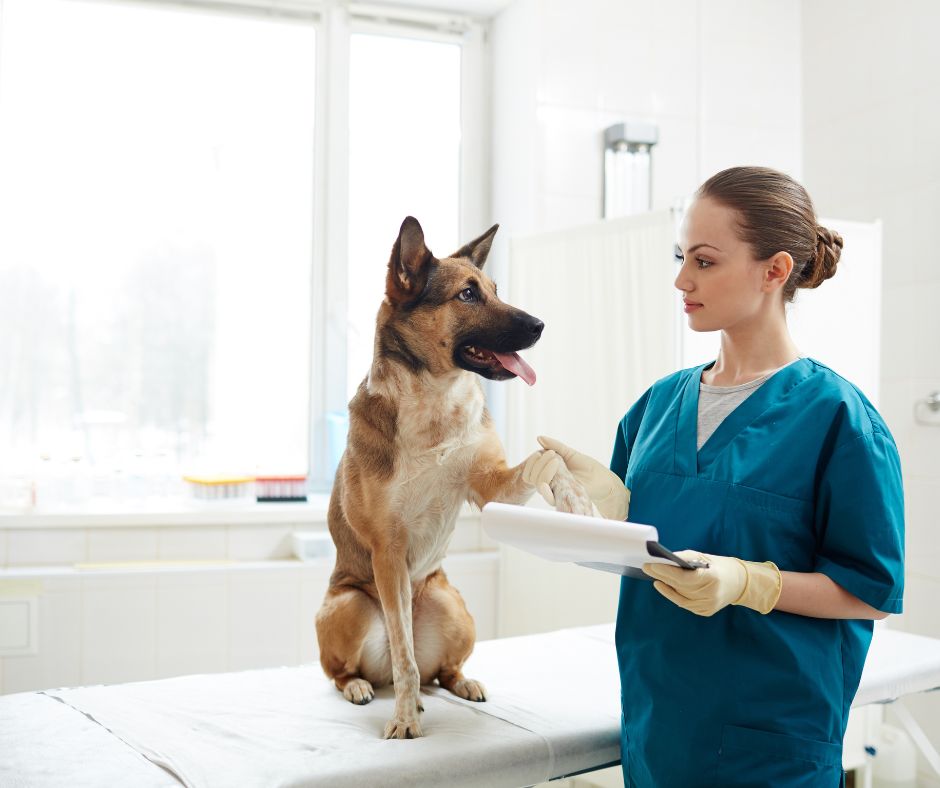
As a dog owner, ensuring the health and well-being of your furry companion is a top priority. While it’s impossible to completely shield your dog from every health issue, there are proactive steps you can take to prevent common ailments and promote a lifetime of good health. In this guide, we’ll explore practical tips for maintaining your dog’s health and preventing common health issues in dogs, ensuring they live a long, happy, and healthy life by your side.
1. Regular Veterinary Check-ups
Just like humans, dogs require regular medical check-ups to monitor their health and catch any potential issues early on. Schedule annual wellness exams with your veterinarian, where they can conduct a thorough physical examination, update vaccinations, and discuss any concerns you may have about your dog’s health. Regular check-ups help detect and prevent health issues in dogs before they become serious problems.

2. Maintain a Healthy Diet
A balanced and nutritious diet is essential for your dog’s overall health and well-being. Choose high-quality dog food that is formulated to meet your dog’s specific nutritional needs based on factors such as age, size, breed, and activity level. Avoid feeding your dog table scraps or unhealthy treats, as these can contribute to obesity and other health problems. Be mindful of portion sizes and monitor your dog’s weight to prevent overfeeding.
3. Provide Regular Exercise
Regular exercise is vital for maintaining your dog’s physical health and mental well-being. Aim for daily exercise sessions that include activities such as walking, running, playing fetch, or engaging in interactive games. Exercise helps keep your dog’s muscles strong, joints flexible, and weight in check. It also provides mental stimulation and helps prevent behavioral issues caused by boredom or excess energy.
4. Practice Good Dental Care
Dental health is often overlooked but is crucial for your dog’s overall health and longevity. Establish a regular dental care routine that includes brushing your dog’s teeth several times a week with a dog-specific toothbrush and toothpaste. Offer dental chews or toys designed to promote oral hygiene, and schedule regular professional dental cleanings with your veterinarian as needed. Good dental care helps prevent periodontal disease, tooth decay, and other oral health issues in dogs.
5. Keep Up with Parasite Prevention
Parasites such as fleas, ticks, and heartworms can pose serious health risks to your dog. Implement a year-round parasite prevention program that includes regular use of flea and tick preventatives, heartworm medication, and routine screenings for intestinal parasites. Keep your dog’s living environment clean and free of pests, and be vigilant when spending time in areas where parasites are prevalent, such as wooded areas or tall grass.
6. Maintain a Healthy Weight
Obesity is a common health issue among dogs and can lead to a variety of health problems, including arthritis, diabetes, and heart disease. Monitor your dog’s weight regularly and consult with your veterinarian if you notice any changes or concerns. Feed your dog a balanced diet, provide regular exercise, and avoid overfeeding or indulging in excessive treats. Maintaining a healthy weight is essential for your dog’s overall health and well-being.
7. Pay Attention to Behavioral Changes
Be observant of any changes in your dog’s behavior, appetite, energy level, or demeanor, as these can be early indicators of underlying health issues. Keep track of any symptoms or abnormalities and report them to your veterinarian promptly. Trust your instincts and advocate for your dog’s health by seeking medical attention if you suspect something is wrong. Early detection and treatment are key to preventing serious health issues from developing.
Preventing common health issues in dogs requires proactive care, attention to detail, and a commitment to your furry friend’s well-being. By following the tips outlined in this guide, including regular veterinary check-ups, maintaining a healthy diet and weight, providing regular exercise, practicing good dental care, keeping up with parasite prevention, and paying attention to behavioral changes, you can help keep your dog healthy and happy for years to come.
Remember, your dog relies on you for their health and well-being, so prioritize preventive care and proactive measures to ensure they live a long, fulfilling, and healthy life by your side.
FAQs
Some of the most common health issues in dogs include obesity, dental disease, ear infections, skin allergies, and arthritis. Preventative care, including regular veterinary check-ups, proper nutrition, and routine grooming, can help mitigate the risk of these conditions.
Preventing obesity in dogs involves feeding a balanced diet suited to their age, breed, and activity level, avoiding overfeeding, and providing regular exercise. Measure your dog’s food portions and monitor their weight regularly, adjusting food intake and exercise as needed.
Dental care is crucial because dental disease can lead to serious health issues like heart, liver, and kidney problems. Prevent dental disease by brushing your dog’s teeth regularly, providing dental chews, and scheduling annual dental check-ups with your veterinarian.
Prevent ear infections by keeping your dog’s ears clean and dry, especially after baths or swimming. Check their ears regularly for signs of infection, such as redness, odor, or excessive scratching, and consult your vet if you notice any problems. Breeds with long, floppy ears may require more frequent ear care to prevent infections.


